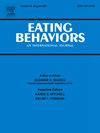代际地位和文化作为大学生饮食失调行为和认知的保护性因素的探讨。
IF 2.6
3区 医学
Q2 PSYCHIATRY
引用次数: 0
摘要
来自移民家庭的年轻人同时适应多种文化,文化在很大程度上影响了饮食失调行为和认知(DEBC)的表现。与文化适应相反,文化适应(即生活在主流文化中保持自己的遗产传统、价值观、信仰等)可能是防止DEBC和身体形象问题的保护因素。考虑到饮食失调的有害后果,了解是否可以利用文化适应来预防DEBC是很重要的;然而,这方面的研究还很缺乏。为了解决这一差距,采用协方差分析和多元线性回归模型对467名大学生进行了代际地位、文化适应和DEBC之间的关系(由进食病理症状量表(EPSI)评估)的调查。文化和代际地位的关联是假设的,但是积极的,这与假设相反。代际地位和文化不单独影响DEBC,但代际地位调节了文化与消极肥胖态度(EPSI子量表)之间的关系。在第一代群体中,文化适应与消极肥胖态度呈正相关,而在第三代和第四代群体中,文化适应与消极肥胖态度呈正相关。代际地位、文化和DEBC之间的联系是微妙而复杂的,但DEBC的某些方面可能对第一代个体特别重要。未来的研究应该在特定的文化、种族和民族群体以及非大学人口中调查这些关系。本文章由计算机程序翻译,如有差异,请以英文原文为准。
An exploration of generational status and enculturation as putative protective factors for disordered eating behaviors and cognitions among college students
Youth from immigrant families navigate multiple cultures concurrently, and culture largely influences how disordered eating behaviors and cognitions (DEBC) present. Enculturation (i.e., maintaining one's heritage traditions, values, beliefs, etc. while living within the dominant culture) may – in contrast to acculturation – function as a protective factor against DEBC and body-image issues. Considering eating disorders' deleterious outcomes, understanding whether enculturation can be leveraged to protect against DEBC is important; however, there is a dearth of research in this area. To address this gap, associations among generational status, enculturation, and DEBC (assessed by the Eating Pathology Symptoms Inventory (EPSI)) were investigated in 467 college students using analysis of covariance and multiple linear regression models. Enculturation and generational status were associated as hypothesized, but positively, which was contrary to hypotheses. Generational status and enculturation did not individually influence DEBC, but generational status moderated the relationship between enculturation and Negative Attitudes toward Obesity, an EPSI subscale. Among the first-generation group, enculturation was positively associated with Negative Attitudes toward Obesity while for the third- and fourth-generation groups, enculturation was negatively associated with Negative Attitudes toward Obesity. The association between generational status, enculturation, and DEBC is nuanced and complex, but certain aspects of DEBC may be particularly important factors for first-generation individuals. Future research should investigate these relationships within specific cultural, racial, and ethnic groups and among non-college populations.
求助全文
通过发布文献求助,成功后即可免费获取论文全文。
去求助
来源期刊

Eating behaviors
Multiple-
CiteScore
4.20
自引率
3.60%
发文量
65
审稿时长
60 days
期刊介绍:
Eating Behaviors is an international peer-reviewed scientific journal publishing human research on the etiology, prevention, and treatment of obesity, binge eating, and eating disorders in adults and children. Studies related to the promotion of healthy eating patterns to treat or prevent medical conditions (e.g., hypertension, diabetes mellitus, cancer) are also acceptable. Two types of manuscripts are encouraged: (1) Descriptive studies establishing functional relationships between eating behaviors and social, cognitive, environmental, attitudinal, emotional or biochemical factors; (2) Clinical outcome research evaluating the efficacy of prevention or treatment protocols.
 求助内容:
求助内容: 应助结果提醒方式:
应助结果提醒方式:


